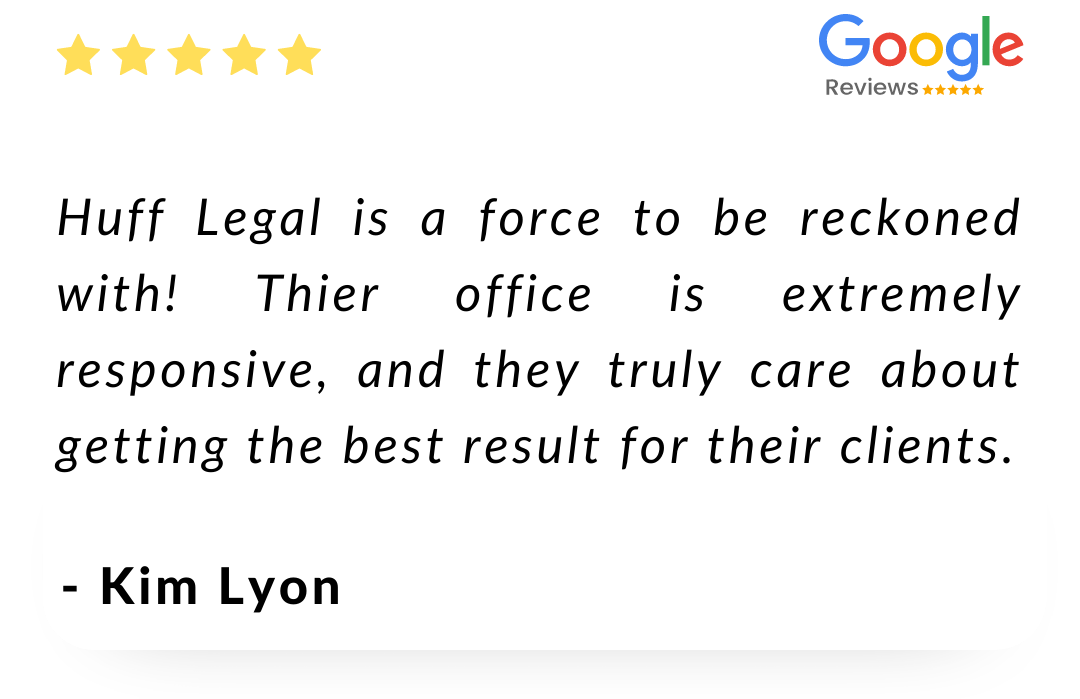Criminally Negligent Homicide in California: Penal Code 192(b) PC
Criminally Negligent Homicide in California
Criminally negligent homicide in California occurs when someone’s reckless disregard for human life results in another person’s death. It is a serious offense, charged as involuntary manslaughter under Penal Code 192b PC, and can have life-altering consequences if you’re convicted.
Understanding the nuances of criminal negligence and how it differs from accidents or simple carelessness is crucial if you’re facing such charges. This article will explain the elements of criminally negligent homicide, potential defenses, and the legal process you may encounter.
What is PC 192(b) Negligent Homicide?
Penal Code 192(b) PC in California defines negligent homicide, which is prosecuted as involuntary manslaughter. This serious offense occurs when someone’s negligent actions or failure to act results in another person’s death. It’s important to understand that this law doesn’t apply to deliberate acts causing death, which are covered under different statutes.
To be convicted of negligent homicide under PC 192(b), prosecutors must prove three key elements:
- You committed a negligent act or failed to perform a duty
- Your negligence was dangerous to human life
- Your negligent act directly caused someone’s death
Criminal Negligence vs. Ordinary Negligence
Understanding the difference between criminal negligence and ordinary negligence is crucial when facing charges under PC 192(b):
- Ordinary negligence is a failure to use reasonable care to prevent foreseeable harm. This is the standard often used in civil cases.
- Criminal negligence involves actions so reckless that they show a substantial lack of concern for the likelihood of causing death. This higher standard is required for criminal charges.
To secure a conviction, prosecutors must prove beyond a reasonable doubt that you acted with criminal negligence. This means demonstrating that your actions were more than a simple mistake or error in judgment. Instead, they must show that your conduct was a gross deviation from how a reasonable person would act in a similar situation.
Request a Free Consultation
What is Criminally Negligent Homicide?
Criminally negligent homicide occurs when someone’s reckless disregard for human life results in another person’s death. It’s a type of involuntary manslaughter that doesn’t involve intent to kill but rather an extreme level of carelessness or negligence.
Examples of Negligent Homicide
To better understand this concept, consider these examples:
- Child supervision failures: If a caregiver fails to properly supervise a child, resulting in the child’s death (e.g., drowning or being left in a hot car), they could face criminally negligent homicide charges.
- Drunk driving: Driving under the influence of alcohol or drugs that results in a fatal accident is often prosecuted as criminally negligent homicide.
- Celebratory gunfire: Firing a gun in celebration without regard for where the bullet might land, resulting in someone’s death, can be considered criminally negligent homicide.
- Reckless driving: Extreme cases of dangerous driving that show a disregard for others’ safety and result in a fatal accident may be prosecuted under this statute.
It’s important to note that these cases often involve complex legal and factual issues. If you’re facing charges related to criminally negligent homicide, seeking experienced legal representation is crucial to protect your rights and build a strong defense.
Penalties for Negligent Homicide Convictions
If you’re convicted of negligent homicide in California, you face serious consequences. The crime is charged as involuntary manslaughter under Penal Code 192b PC and is classified as a felony. Here’s what you need to know about the potential penalties:
- Prison Time
A conviction can result in up to four years in state prison. The exact length of your sentence may depend on factors such as your criminal history and the specific circumstances of the case.
- Fines
In addition to prison time, you may be required to pay a fine of up to $10,000. This can create a significant financial burden on top of the other consequences you’re facing.
- Additional Consequences
Beyond the immediate legal penalties, a felony conviction for negligent homicide can have long-lasting impacts on your life:
- Loss of certain professional licenses
- Difficulty finding employment
- Restrictions on owning firearms
- Potential immigration consequences for non-citizens
It’s important to remember that these penalties can vary based on the specifics of your case. That’s why it’s crucial to work with an experienced criminal defense attorney who can help you navigate the legal system and potentially mitigate these consequences.
Related Crimes
Understanding related crimes can help you better comprehend the legal landscape surrounding negligent homicide. Here are three closely related offenses:
Murder – PC 187
Murder, defined under Penal Code 187, is the most serious homicide charge in California. Unlike negligent homicide, murder requires “malice aforethought,” which means the intent to kill or extreme recklessness showing a disregard for human life.
Key points:
- First-degree murder includes premeditated killings and felony murder
- Carries a potential sentence of 25 years to life in state prison
- More serious than manslaughter charges
Voluntary manslaughter – PC 192a
Voluntary manslaughter, covered by Penal Code 192a, occurs when you kill someone:
- During a sudden quarrel
- In the heat of passion
- Based on an honest but unreasonable belief in the need for self-defense
While still a serious charge, voluntary manslaughter is less severe than murder because it lacks the element of malice aforethought. Like negligent homicide, defendants can sometimes argue that the death was accidental to fight these charges.
Gross vehicular manslaughter while intoxicated – PC 191.5
This offense, defined in Penal Code 191.5, involves causing a death while driving under the influence of alcohol or drugs. It’s similar to negligent homicide but specifically relates to vehicular incidents involving intoxication.
Key differences:
- Requires proof of gross negligence, a higher standard than criminal negligence
- Specifically, it involves driving under the influence
- Can carry harsher penalties than standard involuntary manslaughter
Understanding these related crimes can help you better grasp the nuances of your case if you’re facing negligent homicide charges. Remember, each case is unique, and the specific facts of your situation will play a crucial role in determining the appropriate charges and potential defenses.
The legal penalties for being an accessory to murder can be influenced by various factors, including the jurisdiction’s specific laws, the level of involvement in the crime, any prior criminal record, and the presence of any aggravating circumstances, such as using a weapon or premeditation.

As Seen On












Common Defenses to Negligent Homicide Charges
When facing negligent homicide charges in California, you have several potential defenses available. Understanding these defenses can help you work with your attorney to build the strongest possible case. Here are some of the most common defenses used in negligent homicide cases:
Self-defense
If you acted in self-defense or in defense of others, this could be a valid defense against negligent homicide charges. To use this defense, you must show that:
- You reasonably believed that you or someone else was in imminent danger of bodily harm
- You used only the amount of force necessary to defend against that danger
- You didn’t provoke the situation that led to the use of force
For example, if you pushed someone away from you in self-defense, and they fell and hit their head, resulting in death, you might be able to argue that your actions were justified.
Accident
Sometimes, tragic accidents happen without anyone being criminally negligent. If you can demonstrate that the death was the result of a genuine accident and not due to your negligence, this could be a strong defense. To use this defense, you’ll need to show that:
- You were acting lawfully at the time of the incident
- You were not acting with criminal negligence
- The death was unforeseeable and unavoidable under the circumstances
For instance, if you were driving safely and within the speed limit when a pedestrian suddenly jumped in front of your car, resulting in their death, this could be considered an accident rather than negligent homicide.
Insufficient evidence
In some cases, the prosecution may not have enough evidence to prove beyond a reasonable doubt that you acted with criminal negligence. Your attorney can challenge the evidence presented by the prosecution and argue that it’s insufficient to support a conviction. This might involve:
- Questioning the reliability of witness testimony
- Challenging the interpretation of physical evidence
- Arguing that there are alternative explanations for what happened that don’t involve criminal negligence
Remember, the burden of proof is on the prosecution. If they can’t prove every element of the crime beyond a reasonable doubt, you should be found not guilty.
What Clients Say About Us





Schedule Your Free Consultation Today
Criminal Negligent Homicide vs. Involuntary Manslaughter
In California, the terms “criminal negligent homicide” and “involuntary manslaughter” are often used interchangeably, but there are some subtle differences worth understanding:
Definition and legal classification
Criminal negligent homicide is not a separate charge in California. Instead, cases that might be called “negligent homicide” in other states are typically charged as involuntary manslaughter under Penal Code 192(b).
Involuntary manslaughter is defined as the unintentional killing of another person while committing:
- An unlawful act that’s not a felony, or
- A lawful act in an unlawful manner or without due caution
Level of negligence
Both criminal negligent homicide and involuntary manslaughter involve a level of negligence that goes beyond ordinary carelessness. However, the exact standard can vary:
- Criminal negligence typically involves a gross deviation from the standard of care that a reasonable person would exercise
- Involuntary manslaughter in California requires criminal negligence, which is defined as more than ordinary carelessness, inattention, or mistake in judgment.
Intent
Neither crime involves an intent to kill. The key difference is in the level of awareness of risk:
- In criminal negligent homicide, the defendant is usually unaware of the risk their actions pose
- In involuntary manslaughter cases, the defendant might be more aware of the potential consequences but disregards them
Get Expert Legal Help from Huff Legal
At Huff Legal, we understand the complexities of criminal negligence cases and are committed to providing robust defense strategies tailored to your unique situation.
Our experienced attorneys will guide you through every step of the legal process, ensuring your rights are protected and working tirelessly to achieve the best possible outcome.
Don’t face these serious charges alone – contact Huff Legal today for a confidential consultation and let us put our expertise to work for you.
FAQ
What is the most common form of negligent homicide?
The most common form of negligent homicide often involves traffic accidents due to reckless or impaired driving. This can include drunk driving, excessive speeding, or distracted driving. In many jurisdictions, these cases are specifically charged as vehicular manslaughter.
What is the difference between wrongful death and negligent homicide?
Wrongful death is a civil action, while negligent homicide is a criminal charge. Wrongful death lawsuits are filed by the deceased’s family to seek compensation, while negligent homicide is prosecuted by the state and can result in criminal penalties. The burden of proof is also different, with criminal cases requiring proof beyond a reasonable doubt.
What is the meaning of reckless homicide?
Reckless homicide refers to causing someone’s death through reckless behavior, showing a conscious disregard for the risks to human life. It’s often considered more serious than negligent homicide but less severe than intentional murder. The exact definition and penalties can vary by jurisdiction.
What part of negligence is hardest to prove?
The hardest part of negligence to prove is often causation. This involves demonstrating that the defendant’s negligent actions directly caused the harm or death. Establishing this clear causal link can be challenging, especially in complex cases with multiple contributing factors.
What are the most commonly awarded damages in a negligence case?
The most commonly awarded damages in negligence cases are compensatory damages. These can include medical expenses, lost wages, pain and suffering, and funeral expenses in cases of death. In some cases, punitive damages may also be awarded if the negligence was particularly egregious.
LET HUFF HELP YOU
As a former police officer and patrol supervisor and his time spent as a United States District Court Judicial Law Clerk to the Chief Judge, Attorney Huff knows how to navigate all levels of the complex criminal law system. We also have more than 55 years of combined experience dealing with various complex criminal legal matters and have helped just over 1,500 clients over the past few years.
Why Huff Is Your Best Option For Criminal Defense
55+ Years of Combined Experience
At Huff Legal, we have more than 55 years of combined experience dealing with complex criminal legal matters, which can oftentimes be quite challenging. In order to get the outcome you deserve, you need a team of experienced attorneys on your side, who can help you navigate the legal system, so you can move past this situation and focus on the life ahead of you!
5 Star Rating on Google
We have a proven track record of success and are dedicated to our clients’ best interests. If you’re looking for a law firm that will always have your back, look no further than Huff Legal. Just have a look at some of our amazing client reviews over here!
1,500+ Happy Clients
Over the years, we’ve had the privilege of helping over 1,500 clients with their legal needs. When you work with us, you can be confident that you’re getting the best possible legal representation. We’re proud of our track record and our reputation for being a firm that delivers great results.
What Our Clients Say About Us


Sheila


Abel Resendiz


Manuela Frazier


Doris
Contact Huff Today
Request A Free Consultation
* Free consultations only available for Criminal Defense


In legal terms, an accessory to murder refers to an individual who aids, abets, or otherwise assists in committing a murder. While the specifics may vary across jurisdictions, California law treats accessories to murder as active participants in the crime, holding them accountable for their actions. In San Francisco Bay Area, there are two primary types of accessories to murder:
In the event that you find yourself in the Bay Area facing accessory to murder charges, you should first call a criminal defense attorney who can help you defend your rights and lessen the effects of the investigation. Contact an attorney at Huff Legal as soon as possible following your arrest. An accomplished attorney from Huff Legal will thoroughly examine your case, who will then develop a strategy and build a defense.
